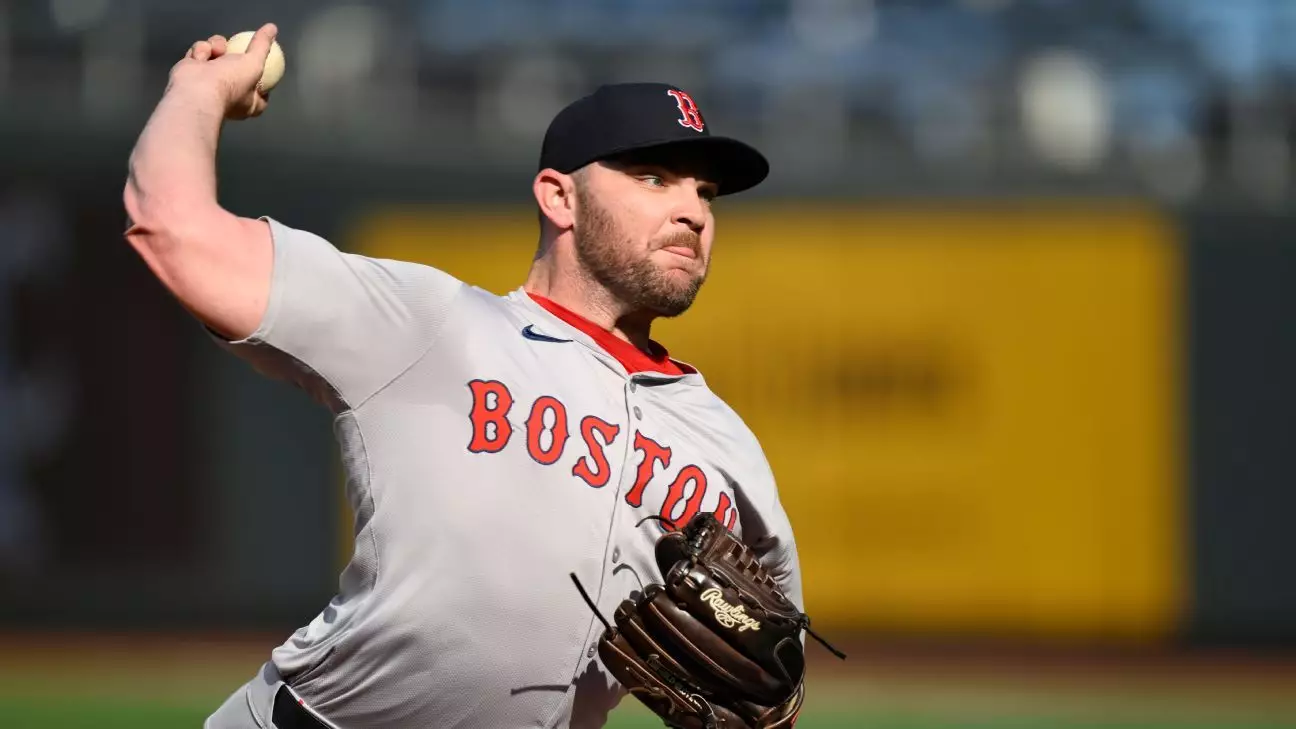Professional athletes often find themselves on a precarious pedestal, where public adoration can swiftly turn into loathing. The recent outburst from Boston Red Sox reliever Liam Hendriks starkly illustrates this troubling phenomenon. Following a disappointing game against the New York Mets, Hendriks received death threats targeting him and his family—a shocking and egregious example of how social media has facilitated a warped culture of hostility towards players. This incident is a gut punch to the sports community, demonstrating that while players entertain and thrill us, they also expose themselves to an alarming degree of vitriol that transcends ordinary criticism.
In the current climate of instant gratification and anonymity, social media becomes a breeding ground for toxicity. Many individuals feel emboldened to convey their displeasure through abhorrent comments—often hidden behind burner accounts. This behavior raises a fundamental question: how did we reach a point where threats against the lives of sports figures can appear to be normalized? As Cora noted, “We’re in the public eye; people feel they have the right to say whatever they want.” This misplaced sense of entitlement is damaging, not just to the athletes, but also to the very ethics of sportsmanship and competition.
A Player’s Burden: Beyond the Stats
Liam Hendriks’ journey isn’t merely marked by his statistics—though a 0-1 record with a 5.56 ERA in 11 games is technically unimpressive—but is overwhelmingly defined by his personal struggles. Following a tumultuous battle with non-Hodgkin’s lymphoma, he returned to the field with hopes that should be celebrated, not vilified. It begs a critical examination of our societal values: are we truly capable of recognizing the humanity behind the uniforms? Or have we become so consumed by wins and losses that we forget the mental and emotional toll placed upon these athletes?
Cora’s empathetic response to Hendriks’ plight—a stark contrast to the harshness of social media—underscores the need for understanding within the world of sports. He openly remarked, “We have to protect our players and voice what we think.” Cora knows firsthand the penalties of public scrutiny, having faced harsh backlash following the Astros scandal. His reflections, especially regarding the safety of his family, highlight the overlooked dimension of athletes as individuals with families and personal lives susceptible to the same insecurities and fears as everyone else.
Social Media: A Double-Edged Sword
The duality of social media as a tool for connection and a weapon for abuse cannot be ignored. On one hand, platforms like X provide a direct line of communication between players and fans, offering a space for engagement and support. But on the other, they also shield anonymous perpetrators who wield their keyboards like swords, inflicting deep emotional wounds from the safety of their screens. This phenomenon is becoming increasingly exacerbated by the explosion of sports gambling, where emotional stakes are raised, and irrational frustrations can erupt during any game.
Cora referred to this as a “dangerous path,” one that allows fans to take it personally when a player falters. Yet it raises uncomfortable questions about the expectations we place on athletes. Are they mere entertainers or should they also be paragons of perfection? In our rush to express our passion, we often overlook the human story behind the numbers on the field.
Redefining Sports Culture
Both Hendriks’ experience and Cora’s candid admission serve as a powerful reminder of the urgent need to evolve our sports culture. We must foster an environment where athletes are recognized not only for their performance but as individuals deserving of respect. Enduring public scrutiny over a blown game or personal struggles is untenable and ultimately detrimental to the spirit of the sport. The ire of fans should not manifest as threats or hatred but should evolve into encouraging support grounded in realism and compassion.
It is time to advocate for a sports culture that uplifts rather than tears down. Fans must hold themselves accountable for their words, understanding that toxicity has no place in our beloved games. The compliance of society in ignoring the grave realities of online abuse must stop. Let’s have a paradigm shift—where we celebrate athletes for their humanity, rather than using their platforms to propagate hate and fear. We owe it to Hendriks and to all athletes to redefine what fandom truly means by prioritizing empathy over anonymity.


Leave a Reply